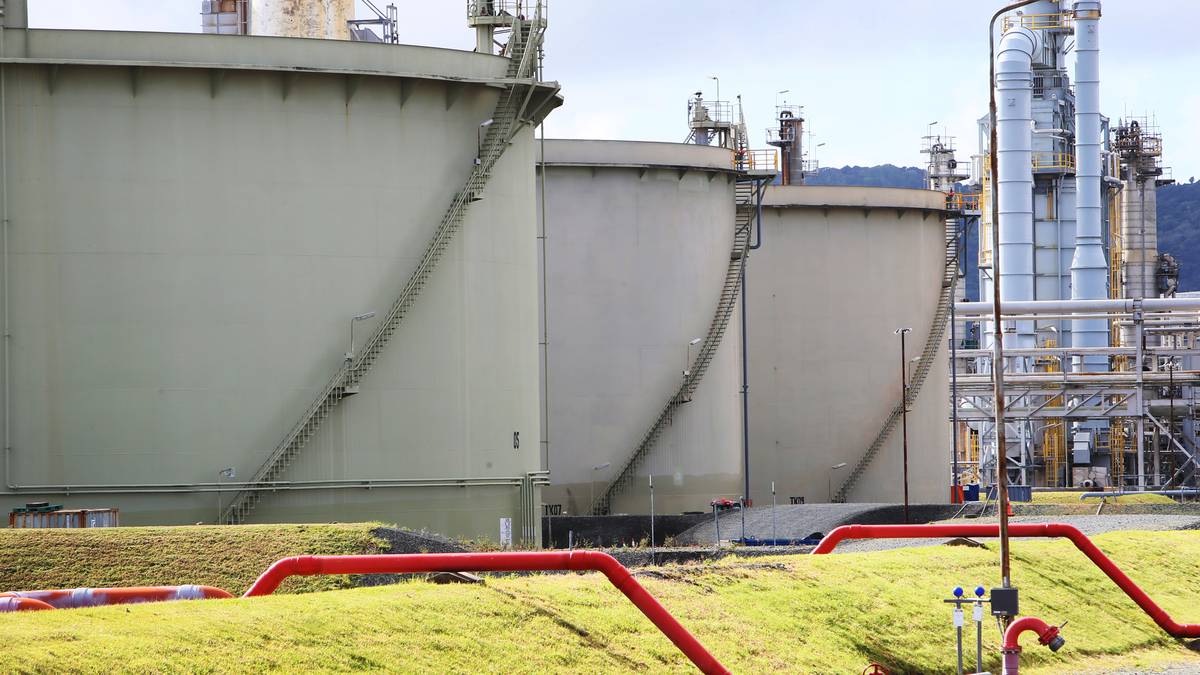Additional storage capacity at Channel Infrastructure should help ensure New Zealand’s fuel security. Photo / Tania Whyte
Channel Infrastructure has spent more than $100 million decommissioning the former oil refinery at Northland’s Marsden Pt and the new company was able to return a profit in its first nine months of operation.
During that time, 56 import shipments were discharged and more than 2.2 billion litres of terminal throughput achieved.
Profit before tax in the financial year 2022 was $23.1m.
With the closure of the refinery, Channel’s carbon dioxide emissions have reduced by more than 98 per cent and the company received the first shipment of sustainable aviation fuel through Marsden Point.
Advertisement
“The conversion project continues to track to plan and to budget, with project spend until the end of December 2022 of $114 million. With some 65 per cent of the budget either spent or committed, the project is now significantly de-risked,” Channel Infrastructure chief executive Naomi James said while presenting the annual results.
/cloudfront-ap-southeast-2.images.arcpublishing.com/nzme/CTGFP4T23B7JGVQURQZSMLRTWE.jpg)
Through 2022, she said aviation demand had recovered to 70 per cent of pre-Covid levels before the most recent weather impacts. Diesel demand remained strong and petrol demand recovered through the year as Covid restrictions were lifted, she said.
In addition to 180 million litres of shared terminal capacity, over half of the almost 100m litres of contracted private storage has now been commissioned, with the remainder anticipated to be available around the middle of this year.
James said additional terminal storage was contracted in the second half of the year, which was expected to deliver $25m of additional revenue over five years.
Advertisement
Revenue this year is expected in the range of $125m to $128m.
With its tank capacity and pipeline direct to Auckland, James said Marsden Point was well placed to support the incoming minimum Domestic Stockholding Obligation and 70 million litres of domestic diesel fuel reserve announced by the Government to ensure New Zealand’s fuel security.
She said the throughput of Channel’s facilities was expected to change over time to meet changing consumer demands, with the shift to electric vehicles, biofuels and continuing growth in aviation.
“With the latest update showing stronger demand for jet fuel and diesel, this outlook confirms a clear path for long-term utilisation of Channel’s jetties, tanks, and pipeline direct to Auckland to supply increasingly renewable jet fuel and diesel to Auckland and Northland, long in the future.”




